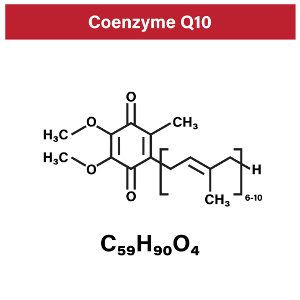afterLoad (456.41KB) (610μs)
afterInitialise (1.28MB) (10.96ms)
afterRoute (869.86KB) (4.77ms)
beforeRenderComponent com_tags (20.38KB) (304μs)
afterRenderComponent com_tags (1.77MB) (30.95ms)
afterDispatch (27.06KB) (1.44ms)
beforeRenderRawModule mod_articles_category (READ MORE...) (372.12KB) (4.36ms)
Before Access::preloadComponents (all components) (56.7KB) (1.59ms)
After Access::preloadComponents (all components) (103.05KB) (605μs)
Before Access::getAssetRules (id:8 name:com_content) (840B) (17μs)
After Access::getAssetRules (id:8 name:com_content) (7.05KB) (40μs)
afterRenderRawModule mod_articles_category (READ MORE...) (6.33KB) (81.93ms)
beforeRenderRawModule mod_tags_popular (Search) (4.81KB) (26μs)
afterRenderRawModule mod_tags_popular (Search) (1.85KB) (78.42ms)
beforeRenderRawModule mod_custom (Remember to download Heart Healthy Seniors) (816B) (30μs)
afterRenderRawModule mod_custom (Remember to download Heart Healthy Seniors) (4.86KB) (229μs)
beforeRenderRawModule mod_custom (Get additionel and more detailed knowledge ) (752B) (13μs)
afterRenderRawModule mod_custom (Get additionel and more detailed knowledge ) (1.67KB) (26μs)
beforeRenderRawModule mod_custom (BOOST YOUR IMMUNE DEFENSE) (608B) (10μs)
afterRenderRawModule mod_custom (BOOST YOUR IMMUNE DEFENSE) (928B) (22μs)
beforeRenderRawModule mod_custom (Are you taking supplements) (736B) (10μs)
afterRenderRawModule mod_custom (Are you taking supplements) (1.03KB) (18μs)
beforeRenderRawModule mod_custom (Antiaging) (720B) (9μs)
afterRenderRawModule mod_custom (Antiaging) (1.02KB) (19μs)
beforeRenderRawModule mod_custom (Exercise) (720B) (8μs)
afterRenderRawModule mod_custom (Exercise) (1.02KB) (18μs)
beforeRenderRawModule mod_custom (Check this before you buy a Q10 product) (752B) (9μs)
afterRenderRawModule mod_custom (Check this before you buy a Q10 product) (944B) (18μs)
beforeRenderRawModule mod_custom (Chronic fatigue tied Alan to his bed but Q10 capsules saved him:) (245.53KB) (7.78ms)
afterRenderRawModule mod_custom (Chronic fatigue tied Alan to his bed but Q10 capsules saved him:) (960B) (54μs)
beforeRenderModule mod_custom (Chronic fatigue tied Alan to his bed but Q10 capsules saved him:) (768B) (4μs)
afterRenderModule mod_custom (Chronic fatigue tied Alan to his bed but Q10 capsules saved him:) (1.3KB) (65μs)
beforeRenderRawModule mod_custom (Cholesterol-lowering without side effects:) (368B) (13μs)
afterRenderRawModule mod_custom (Cholesterol-lowering without side effects:) (2.19KB) (24μs)
beforeRenderModule mod_custom (Cholesterol-lowering without side effects:) (752B) (2μs)
afterRenderModule mod_custom (Cholesterol-lowering without side effects:) (1.28KB) (31μs)
beforeRenderModule mod_articles_category (READ MORE...) (21.32KB) (3.41ms)
afterRenderModule mod_articles_category (READ MORE...) (1.25KB) (66μs)
beforeRenderModule mod_tags_popular (Search) (5.17KB) (14μs)
afterRenderModule mod_tags_popular (Search) (1.27KB) (27μs)
beforeRenderModule mod_custom (Remember to download Heart Healthy Seniors) (1.17KB) (11μs)
afterRenderModule mod_custom (Remember to download Heart Healthy Seniors) (1.3KB) (24μs)
beforeRenderModule mod_custom (Get additionel and more detailed knowledge ) (368B) (9μs)
afterRenderModule mod_custom (Get additionel and more detailed knowledge ) (1.3KB) (21μs)
beforeRenderModule mod_custom (BOOST YOUR IMMUNE DEFENSE) (224B) (9μs)
afterRenderModule mod_custom (BOOST YOUR IMMUNE DEFENSE) (1.28KB) (21μs)
beforeRenderModule mod_custom (Are you taking supplements) (352B) (9μs)
afterRenderModule mod_custom (Are you taking supplements) (1.28KB) (20μs)
beforeRenderModule mod_custom (Antiaging) (336B) (9μs)
afterRenderModule mod_custom (Antiaging) (1.27KB) (20μs)
beforeRenderModule mod_custom (Exercise) (336B) (9μs)
afterRenderModule mod_custom (Exercise) (1.25KB) (20μs)
beforeRenderModule mod_custom (Check this before you buy a Q10 product) (352B) (9μs)
afterRenderModule mod_custom (Check this before you buy a Q10 product) (1.28KB) (20μs)
beforeRenderRawModule mod_menu (Main menu-US) (20.94KB) (2.59ms)
afterRenderRawModule mod_menu (Main menu-US) (152.66KB) (2.78ms)
beforeRenderModule mod_menu (Main menu-US) (720B) (5μs)
afterRenderModule mod_menu (Main menu-US) (4.36KB) (55μs)
beforeRenderRawModule mod_languages (Sprogskift) (3.44KB) (18μs)
afterRenderRawModule mod_languages (Sprogskift) (32.32KB) (3.9ms)
beforeRenderModule mod_languages (Sprogskift) (720B) (6μs)
afterRenderModule mod_languages (Sprogskift) (5.31KB) (21μs)
beforeRenderRawModule mod_finder () (6.34KB) (12μs)
afterRenderRawModule mod_finder () (214.16KB) (3.59ms)
beforeRenderModule mod_finder () (704B) (5μs)
afterRenderModule mod_finder () (5.79KB) (35μs)
beforeRenderRawModule mod_custom () (6.62KB) (144μs)
afterRenderRawModule mod_custom () (22.66KB) (2.85ms)
beforeRenderModule mod_custom () (704B) (7μs)
afterRenderModule mod_custom () (1.23KB) (51μs)
beforeRenderRawModule mod_menu (Main menu-US) (5.07KB) (111μs)
afterRenderRawModule mod_menu (Main menu-US) (5.8KB) (1.62ms)
beforeRenderModule mod_menu (Main menu-US) (720B) (6μs)
afterRenderModule mod_menu (Main menu-US) (1.25KB) (54μs)
beforeRenderRawModule mod_languages (Sprogskift Mobil) (912B) (20μs)
afterRenderRawModule mod_languages (Sprogskift Mobil) (3.89KB) (1.69ms)
beforeRenderModule mod_languages (Sprogskift Mobil) (720B) (5μs)
afterRenderModule mod_languages (Sprogskift Mobil) (1.27KB) (38μs)
beforeRenderRawModule mod_finder () (2.3KB) (12μs)
afterRenderRawModule mod_finder () (6.29KB) (1.49ms)
beforeRenderModule mod_finder () (704B) (5μs)
afterRenderModule mod_finder () (1.23KB) (51μs)
beforeRenderRawModule mod_custom () (8.66KB) (187μs)
afterRenderRawModule mod_custom () (904B) (142μs)
beforeRenderModule mod_custom () (704B) (3μs)
afterRenderModule mod_custom () (2.43KB) (1.05ms)
beforeRenderRawModule mod_custom () (688B) (154μs)
afterRenderRawModule mod_custom () (896B) (162μs)
beforeRenderModule mod_custom () (704B) (3μs)
afterRenderModule mod_custom () (2.71KB) (29μs)
afterRender (322.87KB) (9.83ms)
| 1 x afterRenderRawModule mod_articles_category (READ MORE...) (6.33KB) (31.33%) | 81.93ms |
| 1 x afterRenderRawModule mod_tags_popular (Search) (1.85KB) (29.99%) | 78.42ms |
| 1 x afterRenderComponent com_tags (1.77MB) (11.84%) | 30.95ms |
| 1 x afterInitialise (1.28MB) (4.19%) | 10.96ms |
| 1 x afterRender (322.87KB) (3.76%) | 9.83ms |
| 1 x beforeRenderRawModule mod_custom (Chronic fatigue tied Alan to his bed but Q10 capsules saved him:) (245.53KB) (2.97%) | 7.78ms |
| 1 x afterRoute (869.86KB) (1.82%) | 4.77ms |
| 1 x beforeRenderRawModule mod_articles_category (READ MORE...) (372.12KB) (1.67%) | 4.36ms |
| 1 x afterRenderRawModule mod_languages (Sprogskift) (32.32KB) (1.49%) | 3.90ms |
| 1 x afterRenderRawModule mod_finder () (214.16KB) (1.37%) | 3.59ms |
| 1 x beforeRenderModule mod_articles_category (READ MORE...) (21.32KB) (1.3%) | 3.41ms |
| 1 x afterRenderRawModule mod_custom () (22.66KB) (1.09%) | 2.85ms |
| 1 x afterRenderRawModule mod_menu (Main menu-US) (152.66KB) (1.06%) | 2.78ms |
| 1 x beforeRenderRawModule mod_menu (Main menu-US) (20.94KB) (0.99%) | 2.59ms |
| 1 x afterRenderRawModule mod_languages (Sprogskift Mobil) (3.89KB) (0.65%) | 1.69ms |
| 1 x afterRenderRawModule mod_menu (Main menu-US) (5.8KB) (0.62%) | 1.62ms |
| 1 x Before Access::preloadComponents (all components) (56.7KB) (0.61%) | 1.59ms |
| 1 x afterRenderRawModule mod_finder () (6.29KB) (0.57%) | 1.49ms |
| 1 x afterDispatch (27.06KB) (0.55%) | 1.44ms |
| 1 x afterRenderModule mod_custom () (2.43KB) (0.4%) | 1.05ms |
| 1 x afterLoad (456.41KB) (0.23%) | 610μs |
| 1 x After Access::preloadComponents (all components) (103.05KB) (0.23%) | 605μs |
| 1 x beforeRenderComponent com_tags (20.38KB) (0.12%) | 304μs |
| 1 x afterRenderRawModule mod_custom (Remember to download Heart Healthy Seniors) (4.86KB) (0.09%) | 229μs |
| 1 x beforeRenderRawModule mod_custom () (8.66KB) (0.07%) | 187μs |
| 1 x afterRenderRawModule mod_custom () (896B) (0.06%) | 162μs |
| 1 x beforeRenderRawModule mod_custom () (688B) (0.06%) | 154μs |
| 1 x beforeRenderRawModule mod_custom () (6.62KB) (0.06%) | 144μs |
| 1 x afterRenderRawModule mod_custom () (904B) (0.05%) | 142μs |
| 1 x beforeRenderRawModule mod_menu (Main menu-US) (5.07KB) (0.04%) | 111μs |
| 1 x afterRenderModule mod_articles_category (READ MORE...) (1.25KB) (0.03%) | 66μs |
| 1 x afterRenderModule mod_custom (Chronic fatigue tied Alan to his bed but Q10 capsules saved him:) (1.3KB) (0.02%) | 65μs |
| 1 x afterRenderModule mod_menu (Main menu-US) (4.36KB) (0.02%) | 55μs |
| 1 x afterRenderModule mod_menu (Main menu-US) (1.25KB) (0.02%) | 54μs |
| 1 x afterRenderRawModule mod_custom (Chronic fatigue tied Alan to his bed but Q10 capsules saved him:) (960B) (0.02%) | 54μs |
| 1 x afterRenderModule mod_custom () (1.23KB) (0.02%) | 51μs |
| 1 x afterRenderModule mod_finder () (1.23KB) (0.02%) | 51μs |
| 1 x After Access::getAssetRules (id:8 name:com_content) (7.05KB) (0.02%) | 40μs |
| 1 x afterRenderModule mod_languages (Sprogskift Mobil) (1.27KB) (0.01%) | 38μs |
| 1 x afterRenderModule mod_finder () (5.79KB) (0.01%) | 35μs |
| 1 x afterRenderModule mod_custom (Cholesterol-lowering without side effects:) (1.28KB) (0.01%) | 31μs |
| 1 x beforeRenderRawModule mod_custom (Remember to download Heart Healthy Seniors) (816B) (0.01%) | 30μs |
| 1 x afterRenderModule mod_custom () (2.71KB) (0.01%) | 29μs |
| 1 x afterRenderModule mod_tags_popular (Search) (1.27KB) (0.01%) | 27μs |
| 1 x beforeRenderRawModule mod_tags_popular (Search) (4.81KB) (0.01%) | 26μs |
| 1 x afterRenderRawModule mod_custom (Get additionel and more detailed knowledge ) (1.67KB) (0.01%) | 26μs |
| 1 x afterRenderRawModule mod_custom (Cholesterol-lowering without side effects:) (2.19KB) (0.01%) | 24μs |
| 1 x afterRenderModule mod_custom (Remember to download Heart Healthy Seniors) (1.3KB) (0.01%) | 24μs |
| 1 x afterRenderRawModule mod_custom (BOOST YOUR IMMUNE DEFENSE) (928B) (0.01%) | 22μs |
| 1 x afterRenderModule mod_custom (Get additionel and more detailed knowledge ) (1.3KB) (0.01%) | 21μs |
| 1 x afterRenderModule mod_custom (BOOST YOUR IMMUNE DEFENSE) (1.28KB) (0.01%) | 21μs |
| 1 x afterRenderModule mod_languages (Sprogskift) (5.31KB) (0.01%) | 21μs |
| 1 x afterRenderModule mod_custom (Are you taking supplements) (1.28KB) (0.01%) | 20μs |
| 1 x afterRenderModule mod_custom (Antiaging) (1.27KB) (0.01%) | 20μs |
| 1 x afterRenderModule mod_custom (Exercise) (1.25KB) (0.01%) | 20μs |
| 1 x afterRenderModule mod_custom (Check this before you buy a Q10 product) (1.28KB) (0.01%) | 20μs |
| 1 x beforeRenderRawModule mod_languages (Sprogskift Mobil) (912B) (0.01%) | 20μs |
| 1 x afterRenderRawModule mod_custom (Antiaging) (1.02KB) (0.01%) | 19μs |
| 1 x afterRenderRawModule mod_custom (Are you taking supplements) (1.03KB) (0.01%) | 18μs |
| 1 x afterRenderRawModule mod_custom (Check this before you buy a Q10 product) (944B) (0.01%) | 18μs |
| 1 x beforeRenderRawModule mod_languages (Sprogskift) (3.44KB) (0.01%) | 18μs |
| 1 x afterRenderRawModule mod_custom (Exercise) (1.02KB) (0.01%) | 18μs |
| 1 x Before Access::getAssetRules (id:8 name:com_content) (840B) (0.01%) | 17μs |
| 1 x beforeRenderModule mod_tags_popular (Search) (5.17KB) (0.01%) | 14μs |
| 3 x beforeRenderModule mod_custom () (704B) (0.01%) | 13μs |
| 1 x beforeRenderRawModule mod_custom (Get additionel and more detailed knowledge ) (752B) (0%) | 13μs |
| 1 x beforeRenderRawModule mod_custom (Cholesterol-lowering without side effects:) (368B) (0%) | 13μs |
| 1 x beforeRenderRawModule mod_finder () (6.34KB) (0%) | 12μs |
| 1 x beforeRenderRawModule mod_finder () (2.3KB) (0%) | 12μs |
| 1 x beforeRenderModule mod_custom (Remember to download Heart Healthy Seniors) (1.17KB) (0%) | 11μs |
| 2 x beforeRenderModule mod_menu (Main menu-US) (720B) (0%) | 11μs |
| 1 x beforeRenderRawModule mod_custom (BOOST YOUR IMMUNE DEFENSE) (608B) (0%) | 10μs |
| 1 x beforeRenderRawModule mod_custom (Are you taking supplements) (736B) (0%) | 10μs |
| 2 x beforeRenderModule mod_finder () (704B) (0%) | 10μs |
| 1 x beforeRenderRawModule mod_custom (Antiaging) (720B) (0%) | 9μs |
| 1 x beforeRenderRawModule mod_custom (Check this before you buy a Q10 product) (752B) (0%) | 9μs |
| 1 x beforeRenderModule mod_custom (BOOST YOUR IMMUNE DEFENSE) (224B) (0%) | 9μs |
| 1 x beforeRenderModule mod_custom (Are you taking supplements) (352B) (0%) | 9μs |
| 1 x beforeRenderModule mod_custom (Antiaging) (336B) (0%) | 9μs |
| 1 x beforeRenderModule mod_custom (Check this before you buy a Q10 product) (352B) (0%) | 9μs |
| 1 x beforeRenderModule mod_custom (Get additionel and more detailed knowledge ) (368B) (0%) | 9μs |
| 1 x beforeRenderModule mod_custom (Exercise) (336B) (0%) | 9μs |
| 1 x beforeRenderRawModule mod_custom (Exercise) (720B) (0%) | 8μs |
| 1 x beforeRenderModule mod_languages (Sprogskift) (720B) (0%) | 6μs |
| 1 x beforeRenderModule mod_languages (Sprogskift Mobil) (720B) (0%) | 5μs |
| 1 x beforeRenderModule mod_custom (Chronic fatigue tied Alan to his bed but Q10 capsules saved him:) (768B) (0%) | 4μs |
| 1 x beforeRenderModule mod_custom (Cholesterol-lowering without side effects:) (752B) (0%) | 2μs |
 Asthma is characterized by chronic inflammation and oxidative stress. Smoking, air pollution, heavy metals, and various environmental allergens also increase the risk. However, it appears that an optimal level of selenium and manganese in the blood can potentially improve health and survival in asthma patients. This is partly because selenium and manganese function as antioxidants that counteract oxidative stress and chronic inflammation. At the same time, selenium helps eliminate heavy metals, according to a study published in Scientific Reports.
Asthma is characterized by chronic inflammation and oxidative stress. Smoking, air pollution, heavy metals, and various environmental allergens also increase the risk. However, it appears that an optimal level of selenium and manganese in the blood can potentially improve health and survival in asthma patients. This is partly because selenium and manganese function as antioxidants that counteract oxidative stress and chronic inflammation. At the same time, selenium helps eliminate heavy metals, according to a study published in Scientific Reports.








 Cystic fibrosis is a serious condition that affects the respiratory tract. It comes with chronic inflammation and sticky mucous and is known to cause early death. Patients who take high-dosed vitamin C supplements seem to make better use of vitamin E, which is also an antioxidant, and the result is less inflammation. This was seen in a study from Oregon State University. The scientists mention that taking extra vitamin C is also relevant for smokers and patients with metabolic disease.
Cystic fibrosis is a serious condition that affects the respiratory tract. It comes with chronic inflammation and sticky mucous and is known to cause early death. Patients who take high-dosed vitamin C supplements seem to make better use of vitamin E, which is also an antioxidant, and the result is less inflammation. This was seen in a study from Oregon State University. The scientists mention that taking extra vitamin C is also relevant for smokers and patients with metabolic disease.
 There are several possible causes of male impotence, and the risk increases with age. Oxidative stress appears to play a role, as this condition contributes to local atherosclerosis, which restricts blood flow to the penis. However, consuming a variety of antioxidants - such as selenium, zinc, vitamins A, C, and E, as well as various carotenoids - may help reduce the risk of impotence, according to a U.S. population study published in Scientific Reports.
There are several possible causes of male impotence, and the risk increases with age. Oxidative stress appears to play a role, as this condition contributes to local atherosclerosis, which restricts blood flow to the penis. However, consuming a variety of antioxidants - such as selenium, zinc, vitamins A, C, and E, as well as various carotenoids - may help reduce the risk of impotence, according to a U.S. population study published in Scientific Reports. People suffering from the Crohn’s disease, an inflammatory bowel disorder, often lack folic acid and vitamin B12. It is also known that this disease can be triggered by an infection with Mycobacterium avium subspecies paratuberculosis (MAP), a type of bacteria that can survives in pasteurized milk. A new study that is published in Nutrients has found why lack of folic acid and vitamin B12 disrupts the immune defense, thereby contributing to chronic inflammation that can occur in the wake of an infection with MAP.
People suffering from the Crohn’s disease, an inflammatory bowel disorder, often lack folic acid and vitamin B12. It is also known that this disease can be triggered by an infection with Mycobacterium avium subspecies paratuberculosis (MAP), a type of bacteria that can survives in pasteurized milk. A new study that is published in Nutrients has found why lack of folic acid and vitamin B12 disrupts the immune defense, thereby contributing to chronic inflammation that can occur in the wake of an infection with MAP. Biotin, one of the B vitamins, is essential for numerous metabolic processes, and a biotin deficiency may be associated with inflammatory bowel disease (IBD). According to a new study that is published in Nutrients, a biotin deficiency can also have a negative impact on the intestinal flora and result in a suppression of symbiotic bacteria and a replication of harmful, dysbiotic bacteria. The scientists say that a disrupted gut flora caused by a biotin deficiency may contribute to inflammatory bowel disorders.
Biotin, one of the B vitamins, is essential for numerous metabolic processes, and a biotin deficiency may be associated with inflammatory bowel disease (IBD). According to a new study that is published in Nutrients, a biotin deficiency can also have a negative impact on the intestinal flora and result in a suppression of symbiotic bacteria and a replication of harmful, dysbiotic bacteria. The scientists say that a disrupted gut flora caused by a biotin deficiency may contribute to inflammatory bowel disorders. The most common inflammatory bowel diseases are Crohn’s disease and ulcerative colitis. Lack of certain nutrients can contribute to the development of these conditions. On the other hand, the diseases and the therapies used to treat them may also impair the body’s ability to absorb or utilize certain nutrients, thereby starting a vicious cycle that can make the disease worse. This was demonstrated in a new Greek study that is published in Nutrients. Chronic inflammatory bowel diseases primarily occur in the Western countries and especially at northern latitudes, which suggests that sun exposure and typically Western diets pay a major role in the development of these diseases.
The most common inflammatory bowel diseases are Crohn’s disease and ulcerative colitis. Lack of certain nutrients can contribute to the development of these conditions. On the other hand, the diseases and the therapies used to treat them may also impair the body’s ability to absorb or utilize certain nutrients, thereby starting a vicious cycle that can make the disease worse. This was demonstrated in a new Greek study that is published in Nutrients. Chronic inflammatory bowel diseases primarily occur in the Western countries and especially at northern latitudes, which suggests that sun exposure and typically Western diets pay a major role in the development of these diseases. A team of scientists from Århus University Hospital has discovered that high-doses supplementation with vitamin B1 can help against chronic fatigue that is seen with chronic inflammatory bowel diseases like Crohn’s disease and ulcerative colitis. High doses of vitamin B1 may even help against chronic fatigue in fibromyalgia and other neurological disorders. The scientists have not yet mapped out how the large vitamin doses affect the brain and energy levels and several theories are on the table.
A team of scientists from Århus University Hospital has discovered that high-doses supplementation with vitamin B1 can help against chronic fatigue that is seen with chronic inflammatory bowel diseases like Crohn’s disease and ulcerative colitis. High doses of vitamin B1 may even help against chronic fatigue in fibromyalgia and other neurological disorders. The scientists have not yet mapped out how the large vitamin doses affect the brain and energy levels and several theories are on the table. The ageing process and most chronic diseases like diabetes, cardiovascular disease, and cancer involve chronic inflammation that has the potential to damage healthy tissue. If acute hyperinflammation occurs, for example in connection with virus infections like influenza and COVID-19, the condition may become potentially life-threatening. It is therefore vital that the body can control the different inflammatory processes. One of the things that is needed for this is magnesium, according to a meta-analysis that is published in Nutrients. Here, the researchers look closer at how magnesium supplementation is able to reduce different pro-inflammatory markers. Magnesium also helps activate vitamin D, which is also necessary for controlling inflammation.
The ageing process and most chronic diseases like diabetes, cardiovascular disease, and cancer involve chronic inflammation that has the potential to damage healthy tissue. If acute hyperinflammation occurs, for example in connection with virus infections like influenza and COVID-19, the condition may become potentially life-threatening. It is therefore vital that the body can control the different inflammatory processes. One of the things that is needed for this is magnesium, according to a meta-analysis that is published in Nutrients. Here, the researchers look closer at how magnesium supplementation is able to reduce different pro-inflammatory markers. Magnesium also helps activate vitamin D, which is also necessary for controlling inflammation. Most chronic pulmonary diseases – including asthma, bronchitis, and COPD (Chronic Obstructive Pulmonary Disease) – are characterized by chronic inflammation that makes both the symptoms and the prognosis worse. Fish and fish oil supplements contain specific omega-3 fatty acids that appear to have an anti-inflammatory effect and may therefore be useful as both prevention and therapy for chronic pulmonary diseases. This was demonstrated in a large American population study that also included Europeans. What the researchers also mention is that people who fail to meet the official guidelines for fish consumption are often at increased risk of developing chronic lung diseases.
Most chronic pulmonary diseases – including asthma, bronchitis, and COPD (Chronic Obstructive Pulmonary Disease) – are characterized by chronic inflammation that makes both the symptoms and the prognosis worse. Fish and fish oil supplements contain specific omega-3 fatty acids that appear to have an anti-inflammatory effect and may therefore be useful as both prevention and therapy for chronic pulmonary diseases. This was demonstrated in a large American population study that also included Europeans. What the researchers also mention is that people who fail to meet the official guidelines for fish consumption are often at increased risk of developing chronic lung diseases. Nasal polyps are local growths that may cause runny nose, breathing difficulty, reduced sense of smell, and other symptoms. The polyps are a result of chronic inflammation that can have its roots in a number of causes. According to a new study that is published in Clinical Epidemiology and Global Health, patients with nasal polyps have lower levels of zinc in the affected tissue. Zinc is important for our immune system and for regulating inflammatory processes. Therefore, the nutrient may even have therapeutic potential because many people have relapses after their treatment. Earlier studies even suggest that patients with nasal polyps lack selenium, which is why one should also pay attention to underlying causes like respiratory allergies and food intolerance.
Nasal polyps are local growths that may cause runny nose, breathing difficulty, reduced sense of smell, and other symptoms. The polyps are a result of chronic inflammation that can have its roots in a number of causes. According to a new study that is published in Clinical Epidemiology and Global Health, patients with nasal polyps have lower levels of zinc in the affected tissue. Zinc is important for our immune system and for regulating inflammatory processes. Therefore, the nutrient may even have therapeutic potential because many people have relapses after their treatment. Earlier studies even suggest that patients with nasal polyps lack selenium, which is why one should also pay attention to underlying causes like respiratory allergies and food intolerance.

 The body uses inflammation as part of its normal immune response to infections and tissue damage. If inflammation becomes chronic, however, it can be extremely dangerous. What happens is that it bombards the body with free radicals. This leads to oxidative stress and increases the risk of cell damage, overweight, and chronic diseases like type 2 diabetes, cardiovascular disease, autoimmune diseases, and different cancer forms. Diet and lifestyle play a major role, and according to a meta-analysis published in Frontiers in Pharmacology, Q10 supplementation can lower several markers of inflammation and oxidative stress.
The body uses inflammation as part of its normal immune response to infections and tissue damage. If inflammation becomes chronic, however, it can be extremely dangerous. What happens is that it bombards the body with free radicals. This leads to oxidative stress and increases the risk of cell damage, overweight, and chronic diseases like type 2 diabetes, cardiovascular disease, autoimmune diseases, and different cancer forms. Diet and lifestyle play a major role, and according to a meta-analysis published in Frontiers in Pharmacology, Q10 supplementation can lower several markers of inflammation and oxidative stress.
 The rate of inflammatory bowel diseases like ulcerous colitis is growing, and diet plays a major role. Even if you eat a healthy diet, it can be a challenge to get enough selenium because of the selenium-depleted soil in our part of the world. Apparently, selenium supplementation can lower the disease activity and improve quality of life in patients with ulcerous colitis.
The rate of inflammatory bowel diseases like ulcerous colitis is growing, and diet plays a major role. Even if you eat a healthy diet, it can be a challenge to get enough selenium because of the selenium-depleted soil in our part of the world. Apparently, selenium supplementation can lower the disease activity and improve quality of life in patients with ulcerous colitis. The kidneys cleanse our blood. Well-functioning kidneys are vital for the circulatory system and good health in general. Normal functioning of cells, including kidney cells, hinges on a host of different selenium-containing proteins and coenzyme Q10. Studies show that older people in many parts of the world, Europe included, have deficiencies of both substances. Therefore, a team of Swedish scientists conducted a study where they looked at selenium status and kidney function in a group of seniors. They gave selenium yeast and coenzyme Q10 or placebo to the participants for a period of four years. The results showed that the supplemented group as compared with the placebo group had improved kidney function according to several parameters. The positive effect on cellular energy metabolism, inflammation, and oxidative stress was attributed to the two supplements. The study is published in the science journal Nutrients.
The kidneys cleanse our blood. Well-functioning kidneys are vital for the circulatory system and good health in general. Normal functioning of cells, including kidney cells, hinges on a host of different selenium-containing proteins and coenzyme Q10. Studies show that older people in many parts of the world, Europe included, have deficiencies of both substances. Therefore, a team of Swedish scientists conducted a study where they looked at selenium status and kidney function in a group of seniors. They gave selenium yeast and coenzyme Q10 or placebo to the participants for a period of four years. The results showed that the supplemented group as compared with the placebo group had improved kidney function according to several parameters. The positive effect on cellular energy metabolism, inflammation, and oxidative stress was attributed to the two supplements. The study is published in the science journal Nutrients. Uric acid is a natural waste product in the blood formed when the body breaks down dead cells. If uric acid levels become too high, it can lead to gout, a chronic condition associated with elevated blood pressure, kidney disease, cardiovascular disease, and other illnesses marked by chronic inflammation. According to a population study published in Frontiers in Endocrinology, there appears to be a link between magnesium deficiency, elevated uric acid, and chronic inflammation.
Uric acid is a natural waste product in the blood formed when the body breaks down dead cells. If uric acid levels become too high, it can lead to gout, a chronic condition associated with elevated blood pressure, kidney disease, cardiovascular disease, and other illnesses marked by chronic inflammation. According to a population study published in Frontiers in Endocrinology, there appears to be a link between magnesium deficiency, elevated uric acid, and chronic inflammation. Since the 1950s, the rate of asthma has increased dramatically, especially among children and adolescents. Altered diet habits play a significant role, and now a Swedish population study shows that children who get too little omega-3 and too much omega-6 in their diets have an increased risk of developing asthma later in life. There is also evidence that increased intake of omega-3 fatty acids from oily fish or from fish oil supplements can counteract the inflammatory processes that are seen with asthma.
Since the 1950s, the rate of asthma has increased dramatically, especially among children and adolescents. Altered diet habits play a significant role, and now a Swedish population study shows that children who get too little omega-3 and too much omega-6 in their diets have an increased risk of developing asthma later in life. There is also evidence that increased intake of omega-3 fatty acids from oily fish or from fish oil supplements can counteract the inflammatory processes that are seen with asthma. The number of Danes suffering from one or several chronic diseases is a lot higher than previously thought, according to a group of scientists behind a new study from Danish Center for Healthcare Improvement at Aalborg University. Diseases such as hypertension, elevated cholesterol, depression, bronchitis, asthma, type 2 diabetes, rheumatism, and osteoporosis are among the most widespread ailments. Although there may be a reason of underlying factors, diet and lack of essential nutrients often play a key role. This is something that we have written about over the years on this website, and we have tried to gather some facts from various articles. Simple diet changes and the use of relevant nutritional supplements may play a key role in the treatment of these chronic ailments that come at a huge price, both to the individual sufferer and to society.
The number of Danes suffering from one or several chronic diseases is a lot higher than previously thought, according to a group of scientists behind a new study from Danish Center for Healthcare Improvement at Aalborg University. Diseases such as hypertension, elevated cholesterol, depression, bronchitis, asthma, type 2 diabetes, rheumatism, and osteoporosis are among the most widespread ailments. Although there may be a reason of underlying factors, diet and lack of essential nutrients often play a key role. This is something that we have written about over the years on this website, and we have tried to gather some facts from various articles. Simple diet changes and the use of relevant nutritional supplements may play a key role in the treatment of these chronic ailments that come at a huge price, both to the individual sufferer and to society.
 Many people suffer from chronic inflammation, which sets the stage for a host of diseases such as asthma, type 2 diabetes, atherosclerosis, depression, cancer, rheumatoid arthritis, and other autoimmune diseases. The presence of chronic inflammation may also make infections such as coronavirus and influenza potentially life-threatening by derailing the immune defense. According to a new study from the University of South Australia that is published in International Journal of Epidemiology, it appears that vitamin D can inhibit inflammation by way of different mechanisms, thereby reducing the risk of a variety of diseases and even premature death. The need for vitamin D varies from person to person. Also, it is essential to make sure that blood levels of the nutrient are optimal and that vitamin D is properly activated in the body.
Many people suffer from chronic inflammation, which sets the stage for a host of diseases such as asthma, type 2 diabetes, atherosclerosis, depression, cancer, rheumatoid arthritis, and other autoimmune diseases. The presence of chronic inflammation may also make infections such as coronavirus and influenza potentially life-threatening by derailing the immune defense. According to a new study from the University of South Australia that is published in International Journal of Epidemiology, it appears that vitamin D can inhibit inflammation by way of different mechanisms, thereby reducing the risk of a variety of diseases and even premature death. The need for vitamin D varies from person to person. Also, it is essential to make sure that blood levels of the nutrient are optimal and that vitamin D is properly activated in the body. According to WHO, chronic inflammation is the leading cause of death worldwide. Although it is not something that can be felt as such, chronic inflammation sets the stage for a host of different diseases. In a new review article that is published in StatPearls, the authors look closer at why chronic inflammation is so dangerous and how a healthier lifestyle with vitamin D, selenium, magnesium, zinc, and fish oil can help fight the inflammation and prevent the many different diseases and early death that follow in its wake.
According to WHO, chronic inflammation is the leading cause of death worldwide. Although it is not something that can be felt as such, chronic inflammation sets the stage for a host of different diseases. In a new review article that is published in StatPearls, the authors look closer at why chronic inflammation is so dangerous and how a healthier lifestyle with vitamin D, selenium, magnesium, zinc, and fish oil can help fight the inflammation and prevent the many different diseases and early death that follow in its wake. "After about one week of taking the Q10 supplement I could feel a huge difference," says 23-year old Alan Piccini, who has been suffering from extreme fatigue and muscle aches ever since he was a child.
"After about one week of taking the Q10 supplement I could feel a huge difference," says 23-year old Alan Piccini, who has been suffering from extreme fatigue and muscle aches ever since he was a child. “Taking capsules with co-enzyme Q10 has freed me of the severe side effects of my cholesterol lowering medicine,” Mrs Franken explains.
“Taking capsules with co-enzyme Q10 has freed me of the severe side effects of my cholesterol lowering medicine,” Mrs Franken explains.